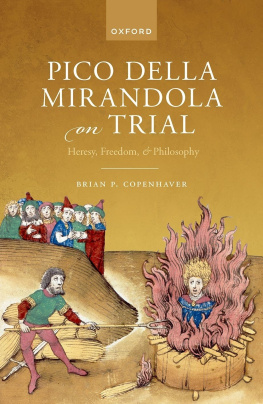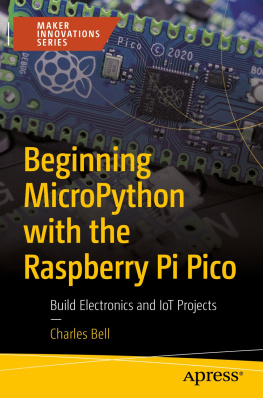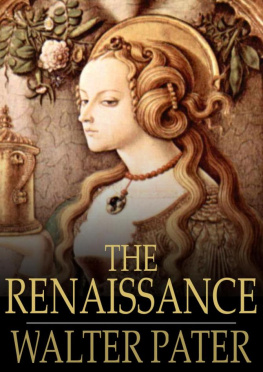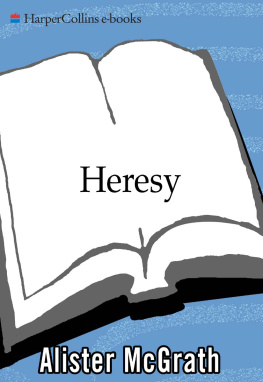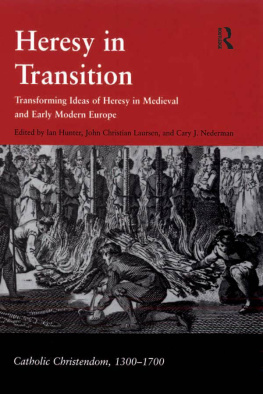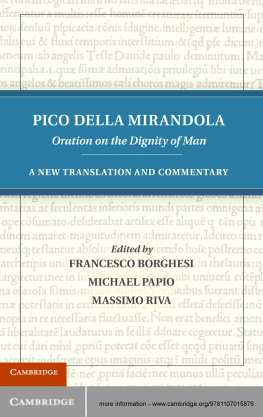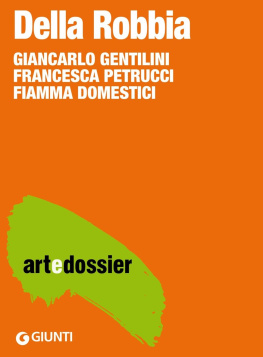Pico della Mirandola on Trial

Great Clarendon Street, Oxford, OX2 6DP, United Kingdom
Oxford University Press is a department of the University of Oxford. It furthers the Universitys objective of excellence in research, scholarship, and education by publishing worldwide. Oxford is a registered trade mark of Oxford University Press in the UK and in certain other countries
Brian P. Copenhaver 2022
The moral rights of the author have been asserted
First Edition published in 2022
Impression: 1
All rights reserved. No part of this publication may be reproduced, stored in a retrieval system, or transmitted, in any form or by any means, without the prior permission in writing of Oxford University Press, or as expressly permitted by law, by licence or under terms agreed with the appropriate reprographics rights organization. Enquiries concerning reproduction outside the scope of the above should be sent to the Rights Department, Oxford University Press, at the address above
You must not circulate this work in any other form and you must impose this same condition on any acquirer
Published in the United States of America by Oxford University Press
198 Madison Avenue, New York, NY 10016, United States of America
British Library Cataloguing in Publication Data
Data available
Library of Congress Control Number: 2022930596
ISBN 9780192858375
ebook ISBN 9780192674166
DOI: 10.1093/oso/9780192858375.001.0001
Printed and bound in the UK by Clays Ltd, Elcograf S.p.A.
Links to third party websites are provided by Oxford in good faith and for information only. Oxford disclaims any responsibility for the materials contained in any third party website referenced in this work.
CN
Terrae Novae Canadensis
philosopho insigni
praeceptorique magnanimo
collega suus
BC
paginas has sacravit
Contents
Abbreviations not listed here for biblical, classical, medieval and philosophical sources, cited in the notes by numbered divisions, with editions and dates of publication indicated as needed, follow LS, OCD, OLD, SBLH and other standard guides.
Pico (2010) in the Bibliography.
Pico (1487) in the Bibliography.
Pico (1995) in the Bibliography.
Pico (1486) in the Bibliography.
.
Pico (c.1489) in the Bibliography.
A Greek-English Lexicon, ed. H. Liddell , R. Scott , et al. Oxford: Oxford University Press, 1968.
Migne (184165) in the Bibliography.
The Oxford Classical Dictionary, ed. S. Hornblower and A. Spawforth . Oxford: Oxford University Press, 1996.
.
.
Oxford Latin Dictionary, ed. P. Glare . Oxford: Oxford University Press, 1982.
The SBL Handbook of Style for Ancient Near Eastern, Biblical, and Early Christian Studies, ed. P. Alexander et al. Peabody, MA: Hendrickson, 1999.
.
Giovanni Pico della Mirandola (146394) has been a beacon of progress in modern times, and the celebrated Oration on the Dignity of Man has been the engine of his fame. But he never wrote a speech about the dignity of man, as I showed in my recent book about Pico della Mirandola and his Oration in Modern Memory. The princes speech announced quite different projects: persuading Christians to become Kabbalists in order to annihilate themselves in God; and convincing philosophers that their path to saving wisdom was concord rather than disputation.
This book about Heresy, Freedom, and Philosophy shows that Picos work, before and after he wrote the Oration, was in no way progressiveor humanist. My main topic is Picos Apology, his self-defense against heresy charges: this public polemic reveals more about him than the famous speech that he never gave and that deliberately kept his ideas secret. The orators method in the Oration was esoteric, but the defendant in the Apology made his case openly in a voice that was academic and belligerent, not oracular or poetic. Perhaps because of its size and presentation, the Apology has been read less than Picos other writings: as far as I know, the last book devoted entirely to it appeared more than five centuries ago.
Because Picos speech was misread for so long, he came to be seen as a herald of modernity and a prophet of Enlightenment. This book confirms that he was no such thing. Pico wrote the Apology, his second book, to defend his first book, the outrageously provocative 900 Conclusions that he published a few months earlier. This collection of theses for academic debate caused an uproar. Pope Innocent VIII condemned thirteen of the princes propositions within weeks after the Conclusions appeared. To answer the Popes indictment point by point, Pico divided his Apology into thirteen parts, called Questions. My book discusses these Questions, labeled Q1, Q2, Q3 and so on, while focusing on six of them.
: To put Picos Questions in context, my first chapter introduces the Apology as a wholea record of conflict between Pico and his papal judges about basic points of Christian doctrine, like Gods incarnation as a human, the descent of Jesus to Hell, Christs eucharistic body, and constraints on belief about such teachings. The six Questions studied here show better than the other seven how the prince confronted his prosecutors on these fundamentals of his faith and theirs.
After Jesus was crucified but before he rose from the dead, he descended to Hell in order to release good people imprisoned there temporarily: this Harrowing of Hell was a primary but perplexing article of the Christian creed. When Jesus went down to Hell, his body was still buried. But Pico and his adversaries in court, like all Christians, thought of the Hell that Jesus visited as a placeor a place containing many places, if Dante was right. How could Christ, without a body, be in a place, any place at all?
The person who took this trip to the underworld was Goda pure spirit, eternal and changeless. But this God had taken on a human body, as Jesus, in order to save other embodied humans. Yet Pico knew that human bodies were material and imperfect, that they changed, suffered, and died. Then how could a changeless God be both perfect and embodied? To understand the dogma of incarnationthe embodiment of Godin a philosophical way, the inquiring prince needed a theory of divine embodiment. But the version that he proposed offended the authorities, and they ruled that his ideas were heretical.
: To express his theories and defend them, Pico used techniques and terminology of scholastic theology, as taught by Thomas Aquinas, John Duns Scotus, and William of Ockham but also by Jean Cabrol, Pierre de la Palud, Jean Quidort, and other lesser figures. To document his Apology, Pico relied on three dozen medieval authorities in allboth obscure and eminent. Their philosophical vocabulary was specialized, even arcane, but Pico had to master it, and he did. My second chapter shows the complexity and depth of what he learned.
An indispensable part of the scholastic language that Pico acquiredwith life or death consequences for himwas the medieval terminology of suppo- words. He inherited these technical terms from a tradition ten centuries old, and venerable age was part of their value for him. The

